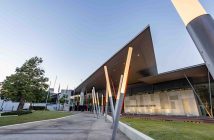 FARE’s latest Alcohol Poll has been dismissed as distorting public opinion and creating fear mongering about alcohol consumption in order to prop up more tax payer funded public health researchers.
FARE’s latest Alcohol Poll has been dismissed as distorting public opinion and creating fear mongering about alcohol consumption in order to prop up more tax payer funded public health researchers.This year’s poll includes a record number of questions designed to provoke a sensational level of fear and misinformation about alcohol consumption and the alcohol industry amongst ordinary Australians.
The survey’s distribution of respondents is at odds with Australia’s population demographics, large states like New South Wales which accounts for 32% of the national population represents only 19% of respondents while Victoria with 25% of the population represents only 16.5% of respondents. Therefore more than 57% of the Australian population was reduced to 35% of respondents. Conversely, respondents from less populous states are disproportionately represented – South Australia with 7% of the population represents 16.6% of respondents and ACT with 1.6% represents 5.5% of respondents.
The survey is conducted using a cash reward commercial service that matches respondents’ interests and encourages participation through payment. Promotion to potential survey respondents includes lines like “your answers put you into groups for future campaigns, the more profile questions you answer, the more groups you belong to, the more campaigns you will be targeted for, the more cash you earn”.
Whilst this type of research may be appropriate for brand and product surveys, independent, non-discriminatory and random polling is the only type of data that should be used to create a snapshot of population policy views. In contrast, the Australian Bureau of Statistics latest research shows that Australians are drinking less alcohol overall than at any time in the last 15 years.
Over this period we have also seen the roll out of mandatory RSA training in every state and territory, increased penalties for violent offenders and those engaged in inappropriate or criminal behaviour in or around licensed premises, new restrictions on trading hours, the introduction of lockouts and substantially higher penalties for licensees and managers of licensed premises.
Through the nature of the questions and the responses from paid participants, the fear mongering campaign agenda of alcohol health researchers and associated entities has reached an all-time high.
Whilst the all-powerful and well-funded public health lobbyists would have Australians believe that drinking is at crisis levels, the opposite is true. Every adult Australian who drinks can always be more responsible about their consumption just as the alcohol industry remains committed to responsible production and sales.



